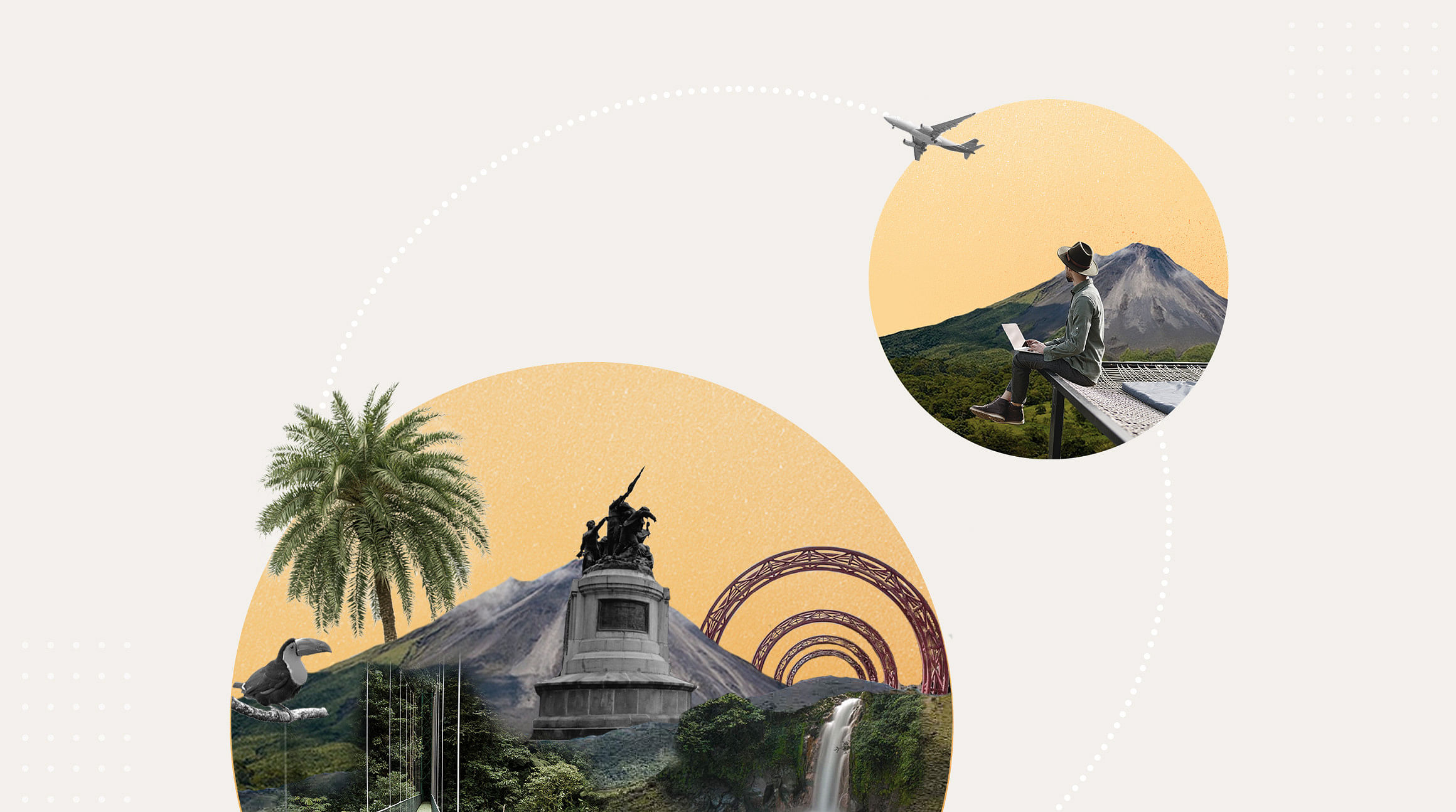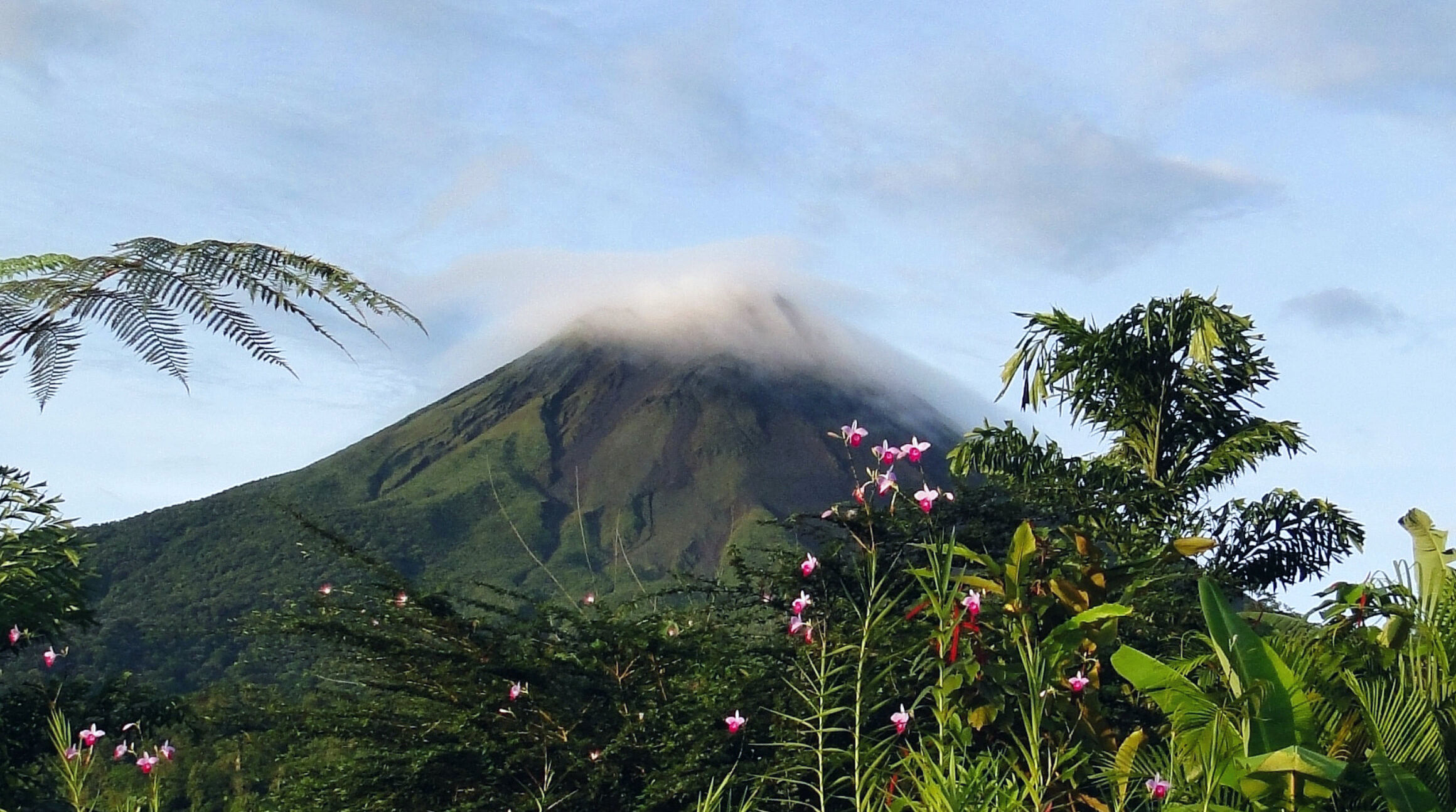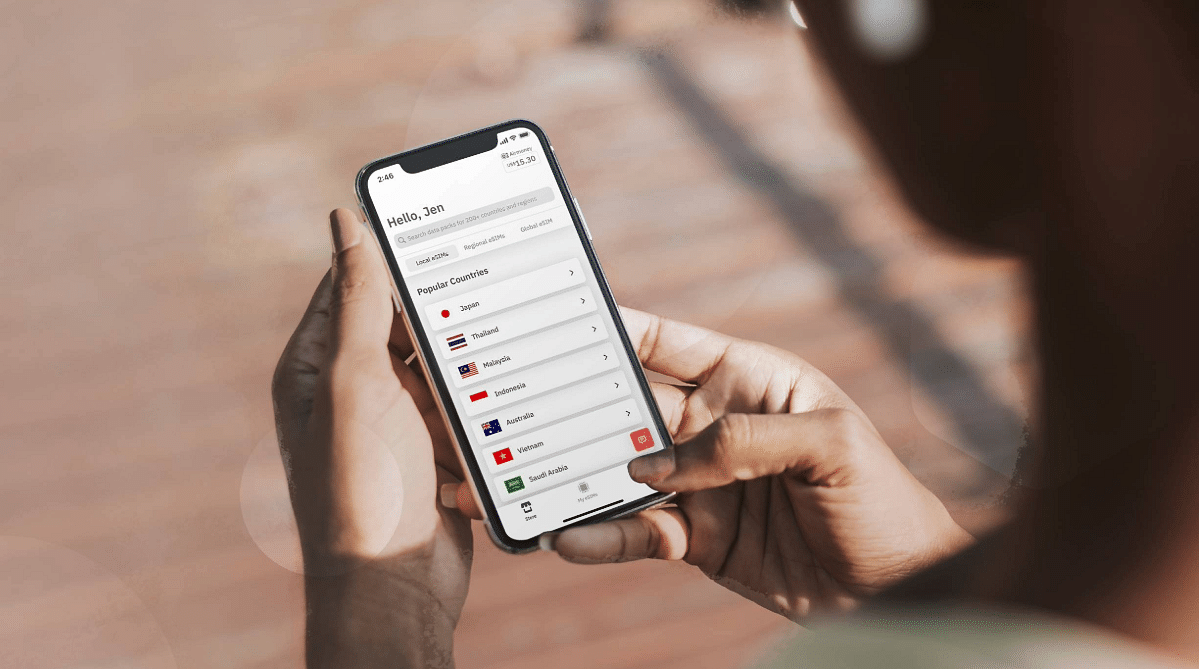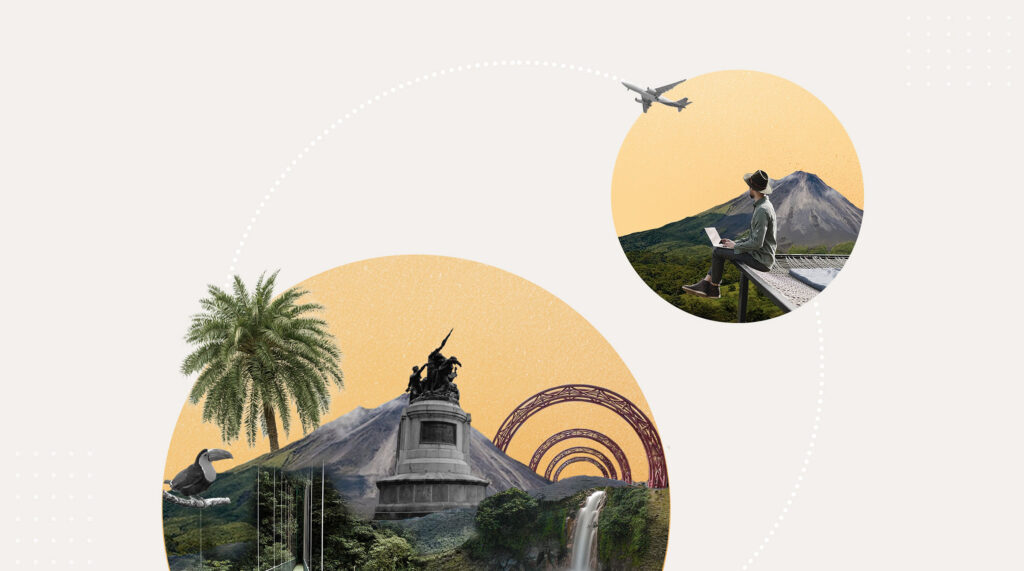No products in the cart.
Uncategorized
Costa Rica Digital Nomad Visa: How To Apply

Dreaming of working from Costa Rica? If this South American gem is the next stop on your digital nomad itinerary, you’re in luck. A Costa Rica Digital Nomad Visa is one of the easiest and quickest digital nomad visas to obtain. Follow these easy-to-accomplish steps to work remotely as a digital nomad in Costa Rica.
In this article:
- The Costa Rica Digital Nomad Visa
- Eligibility requirements for the Costa Rica Digital Nomad Visa
- How much does the Costa Rica Digital Nomad Visa cost?
- How to obtain a Costa Rica residency permit
- How digital nomads can stay connected using an eSIM
Related: The 6 Best Digital Nomad Destinations of 2024 (And Everything You Need to Know to Move There)
 Pexels
Pexels
The Costa Rica Digital Nomad Visa
The Costa Rican government has made the application process for Costa Rica visas relatively easy. Digital nomads previously had the option to extend a 90-day tourist visa up to one year. Now, the 90-day tourist visa is no longer essential.
The Digital Nomad Visa application can be initiated out of the country or in-country without the previous 90-day requirement. The visa will be granted to a successful applicant for one year, then can be extended for another year.
Eligibility Requirements for the Costa Rica Digital Nomad Visa
Here are some important details to consider in determining your eligibility for the Costa Rica Digital Nomad Visa.
Employment Parameters
To apply for a Digital Nomad Visa in Costa Rica, you must work for a foreign-based company (e.g., a company not registered in Costa Rica), own a business, or be a freelance worker. The latter two work scenarios must also be foreign companies.
Income Requirements
The Costa Rican government wants to ensure that all Digital Nomad Visa applicants are financially self-sufficient and won’t require assistance from the local government for basic living expenses. To that end, you must earn a monthly income of at least US$3,000.
Health Insurance
You also must secure health insurance with a minimum coverage amount of US$50,000. If you’re bringing your family with you, you must provide adequate healthcare for everyone who will remain in residence during the visa’s duration.
Required Documents
There is a comprehensive list of documents the Costa Rican government requires as part of the Digital Nomad Visa application process. It’s important to note that all of these documents must receive an official translation into Spanish and be verified by an Apostille.
The required documents include the following:
- The Digital Nomad Visa application form from the Costa Rican Consulate or Embassy or their online portal.
- A current passport with a minimum of six months left until expiration.
- Active travel insurance to cover unexpected incidents when traveling.
- A housing contract that shows proof of housing for the duration of your intended stay. This may include a hotel room, rental home, apartment, or long-term rental space.
- An employment contract from a company, self-owned business, or freelance agency.
- An official declaration stating you intend to work remotely and maintain gainful employment during the visa’s timeframe.
- Bank statements that show adequate savings to remain financially independent in Costa Rica.
- Paychecks, pay stubs, or proof of earned income payments from your employer.
- If applying online, a document from your employer or self-owned business stating your authority to work in a third-party country. This document should also include an established monthly income.
- A declaration authorizing consent for the Dirección General de Migración y Extranjería to use your personal data.
- A form detailing personal information regarding any family members who will be in-country during the Digital Nomad Visa timeframe. This includes a spouse or any children between the ages of 18 to 25 years.
- If any underage (under 18 years) or disabled family members or dependents are accompanying the applicant, an additional form must be filled out detailing their personal information.
Where To Submit the Application
There are two options to submit the application and related paperwork. The first is to present the paperwork in person at a Costa Rican Embassy or Consulate. If you’re already in Costa Rica, the process can be completed at the Dirección General de Migración y Extranjería.
The second choice is to submit the application package online. The option selected will depend on how quickly the Digital Nomad Visa is needed. The online application option will likely be processed in two weeks unless further requirements are requested.
 Unsplash
Unsplash
How Much Does a Costa Rica Digital Nomad Visa Cost?
Two separate payments are required as part of the application process. The first is for US$100 to the Costa Rican government. The second is US$90 to cover the processing and delivery of the Digital Nomad Visa immigration document.
Once approved, a further fee is necessary. You’ll need to pay a security deposit of 75% of the cost of a return airline flight to your home country. The Costa Rican visa-issuing entity will designate this amount.
After arrival in Costa Rica, you’ll need to pay a residency fee of US$50. You’ll also need to legally register all of the documents submitted throughout the application process. This fee is usually US$3.75 per page.
How To Obtain a Costa Rica Residency Permit
Once a Digital Nomad Visa is approved and you arrive in Costa Rica, there’s more work to be done. Within three months of arrival, you must apply for and receive a residency permit from an immigration office. If this isn’t completed in time, you run the risk of visa revocation.
The following steps are necessary to secure a residency permit in Costa Rica:
- Record your biometric data with the Ministerio Seguridad Pública in San Jose.
- Obtain two passport-style photos with standard passport size requirements.
- Photocopy all passport pages and have them certified by a notary public.
- Provide an official request letter translated into Spanish. This letter will detail your intentions for residing in Costa Rica and the reasons for a residence permit request. A public notary or immigration official employed by the Costa Rican government must sign the letter.
- Provide an official copy of your birth certificate with an Apostille stamp.
- Provide documents showing a clean criminal record from all countries you’ve lived in for the past three years.

How Digital Nomads Can Stay Connected Using an eSIM
Communication is vital for any digital nomad. It’s necessary to stay in touch with family and friends at home, and essential to connect with people and organizations in home countries.
An eSIM simplifies communication. It’s the easiest and most affordable way to stay connected while you travel the world as a digital nomad. Here are a few ways using an eSIM can benefit you:
- No roaming fees. eSIM plans are prepaid, so you don’t need to worry about accidental roaming charges while you travel.
- Tether your eSIM data. No Wi-Fi connection? No problem. You can tether your eSIM data to another device, like a tablet or laptop.
- 100% digital. There’s no need to keep track of a physical SIM card for every destination — you can save up to eight digital eSIM profiles on most smartphones.
- Top up your data. Many Airalo eSIM packages have a top-up function, which allows you to top up your data, calls, or messages on the go.
- Share your adventures. Use your eSIM data to send emails, connect with your loved ones, and post on social media in real-time.
- Stay connected. You don’t need to rely on a Wi-Fi connection to get online — instead, you can use an eSIM to access data wherever you travel.
Airalo’s eSIMs make life easier for digital nomads. Visit the Airalo store to find eSIMs for 200+ countries and regions worldwide.

